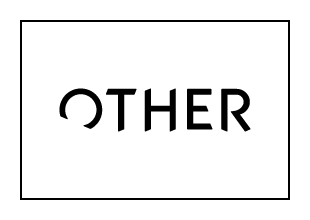The Other Who Troubles Philosophy - Introduction To The Series

Any Steemers out there into Philosophy? Below is some of my work. If you want to see more of this work, please upvote or otherwise send up a signal so I know there is interest out there!
I'll begin with an overview of what is called the "problem of intersubjectivity" in Continental Philosophy, and then each day I'll post en entry that details each philosopher's work in more detail. I'll cover key aspects of the philosophies of Hegel, Husserl, Heidegger, Sartre, Beauvoir, Merleau-Ponty, Levinas, and Irigaray.
Enjoy!

The Other Who Troubles Philosophy
In Continental Philosophy, there is a discussion about the problem of the Other that emerges from different philosopher’s theories of intersubjectivity — theories about the constitution of subjectivity in and through the relation between the Self and the Other. In what follows, I will outline the history of this problem in Continental Philosophy, beginning with Hegel. I will be going into more detail on each of these philosopher’s theories in future blog post stories so feel free to come back for further elaborations!
Hegel (1770–1831): The Master/Slave Dialectic
According to Hegel’s story about the evolution of spirit in his Phenomenology of Spirit, an abstract, universal consciousness becomes self-consciousness in the bifurcation and opposition between two forms consciousness takes. Because both consciousnesses seek to be recognized as true, original, and authentic consciousness, a struggle over recognition ensues. In the struggle, a choice must be made between life and freedom. One consciousness values their freedom over their life, judging that their life would be meaningless without freedom; this consciousness becomes the master consciousness. The Other consciousness chooses life over freedom, judging that freedom is meaningless without life; this is the slave consciousness because the slave choses to subjugate their freedom to the master in exchange for safeguarding their life.
Subjectivity emerges in and through this struggle: it is co-constituted as the relation between master and slave — an asymmetrical relation of difference. In this relation, the slave is turned into the master’s Other, serving and reflecting the master’s needs and desires. On their part, the master whose needs are anticipated and served by the slave, simply lays back and consumes what he needs and desires.
But the revelation of Hegel’s Master/Slave dialectic is that the dialectic is carried forward not by the master consciousness, as one might expect, but by the slave who must come to self-consciousness as independent consciousness through the fruits of its labor. When the slave comes to understand that the Master is dependent on the Slave’s labor for the satisfaction of their needs and desires, the Slave lays claim to its own independent self-consciousness.
Edmond Husserl (1859–1938): The Other Whom We Come To Know
For Husserl, the problem of the Other is an epistemological problem having to do with how we can come to know the Other and the world, and his account in Cartesian Meditations is meant as an answer to the problematic solipsism of the Cartesian subject inherited from Descartes. He posits a shared lifeworld in which we come to recognize the Other as another Self who, like us, exerts their will upon objects in a shared world.
Arguably, Husserl does not succeed in overcoming the solipsism of the subject because we can only come to know others in so far as their are like us — in other words, not in terms of their difference or otherness, but as self-same others. Husserl’s subject cannot come to know anything that is alien to it’s own experience.
Martin Heidegger (1889–1976): Mitsein and “the They”
In Heidegger’s Being and Time, anonymous others comprise Dasein’s original state of being-with (Mitsein). These anonymous others are referred to collectively as “the They,” a mass of humanity with whom we are thrown into the world. Dasein is a part of the being-with amongst “the They,” from whom, for the most part, Dasein does not distinguish itself. Even setting itself apart from these others is an experience common to “the They” — we all long to be recognized for being special and unique in our being.
So how does Dasein transcend “the They” and come into authenticity? Only by taking on its own being-toward-death does Dasein catch a glimpse of transcendence, lifting itself out of “the They.” Again, we’ll take a closer look at the sections where Heidegger speaks about being-with or Mitsein, but lets continue in summary form to look at Sartre’s take on the problem of intersubjectivity and the Other.
Jean-Paul Sartre (1905–1956): “Hell Is Other People”
In Part III of Being and Nothingness that is entitled “The Look,” Sartre denies Hegel’s basic assumption that I can immediately apprehend and absorb how the Other sees me. This is because the Other sees me initially as an object among objects in the world, and a subject cannot accept or internalize the objectification. As Sartre writes:
“I am incapable of apprehending for myself the self which I am for the other, just as I am incapable of apprehending on the basis of the other-as-object which appears to me, what the Other is for himself” (Being and Nothingness 327).
The Self here cannot fully comprehend the Other, and the mirror that the Other provides is neither passive not transparent. The Other distorts my own self-understanding — i.e., the image of me that is reflected in and through the Other is, by necessity, a distorted version. In this way, the Other modifies my own sense of self, against me and in spite of me and my desires, denying me control of my own self-understanding.
In this way, the Other undercuts the subject’s freedom and self-determination. To recognize the Other as such is to see oneself through an alien and alienating mirror, and it this is something that we want to counter and negate in order to preserve our own sense of ourselves. Thus, the essence of the subject’s relation to the Other is conflict, and any encounter with alterity is, by necessity, alienating. As Sartre so famously puts it in his play No Exit, “Hell is other people.”
Emmanuel Levinas (1906–1995): The Face-to-Face Encounter With The Other
Levinas’ thinking on intersubjectivity and the Other begins from the rejection of previous models that don’t seem to allow for an authentic encounter with true alterity — that don’t seem to allow for the otherness of the Other. His starting point in Totality and Infinity is to call out the mistake he believes his predecessors have made, which is to imagine that our relation to others is first and foremost founded in epistemic terms. For Levinas, Other is not there to be known, and the Other resists our attempts to comprehend them, a rejection of the epistemological framework of his predecessors.
Instead, Levinas insists that our relation to others is first and foremost a concern for Ethics, and Ethics is founded precisely in and through what he describes as the face-to-face encounter with the Other’s otherness, with the Other as radical alterity. This encounter with radical alterity calls us out and makes us responsible for the Other, a responsibility that cannot be done away with — that is, it is irreducible.
Finally, it is the face-to-face encounter that inaugurates language and thought, and therefore, it is the condition for the possibility for knowledge of any kind. In short, ethics precedes epistemology.
Maurice Merleau-Ponty (1908–1961): The Other As Foundation For Our Own Subjectivity
Merleau-Ponty takes Husserl’s account and elaborates upon it as follows:
Prior to conscious thought, prior to an exchange with a particular Other, the human world is there for us. There is no human world that does not always already include others, and it would be very difficult to imagine a meaningful world devoid of others. Against Husserl, Merleau-Ponty points out that we are not, from the start, distinct from this world and others, but form a unity with them from which we later come to separate out our own individual subjective sense of self. In this way, our encounter with otherness is a condition for the possibility for our own subjectivity.
The mere existence of an Other takes us outside of our bodies and ourselves. As we are drawn into their world of concern, we forget ourselves and our concerns. We come to be out there in the world, and as Merleau-Ponty suggests, the world comes to inhabit us. In other words, the other doesn’t just present us with the data of other consciousnesses like ours existing in the world, but the other affects us and acts upon us, as if love stricken.
Simone de Beauvoir (1908–1986): Woman As Other
In The Second Sex, Beauvoir appropriates Hegel’s Master/Slave dialectic to argue that woman has historically been constituted as Other with respect to man. Just as the Slave must lay claim to its own independent self-consciousness, woman too must come to realize man’s dependence on her, and come to make a claim to her own (sexually differentiated) subjectivity. That is, when women assert man’s otherness with respect to them, then an authentic woman’s standpoint will emerge to make women’s economic, political, and social projects possible.
Luce Irigaray (1930-present): The Feminine Other
In a long footnote on Emanuel Levinas’ use of the feminine as the par excellence example of radical alterity, Simone de Beauvoir criticizes this characterization of woman as an etherial, impossible femininity. Irigaray, however, will find something of value in his assertion of sexual difference as difference par excellence. For her, the radical alterity of the feminine is the starting point for thinking about radical and irreducible differences between sexually differentiated subjects. Moving away from the idea of sexually indifferent subjects that ends up being modeled on masculine subjectivities, Irigaray argues strongly for sexual difference as the starting point for understanding how subjectivity emerges.
In An Ethics of Sexual Difference, Irigaray argues that women are conceived of in spatial terms — as wombs and containers for man’s transcendence through time. In order to truly think (sexual) difference, we need to rethink the metaphysics of time and space. In other words, the problem of the other is, at heart, a problem for metaphysics and ontology (the study of Being). It is a bold claim that she bears out in the rest of her work.
☞ The next blog post in this series is Hegel’s Master/Slave Dialectic In the Phenomenology of Spirit
Yes!
More!!
More!!!
Might I also, humbly, recommend Martin Buber - I and Thou.
I find it to be a great salve for the existential burns caused by the...let's say..."harshness" of these philosophers' analyses of the "Other."
Buber says that all real living is meeting.
So thanks for helping me live!
Thanks for the encouragement! Yes, this is a great little book! A great read, and if read in the right spirit, will transform your perspective on others. ッ